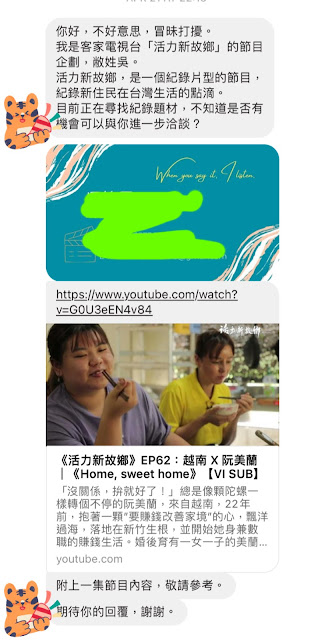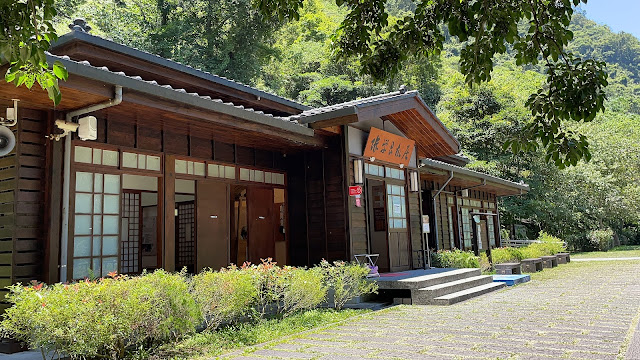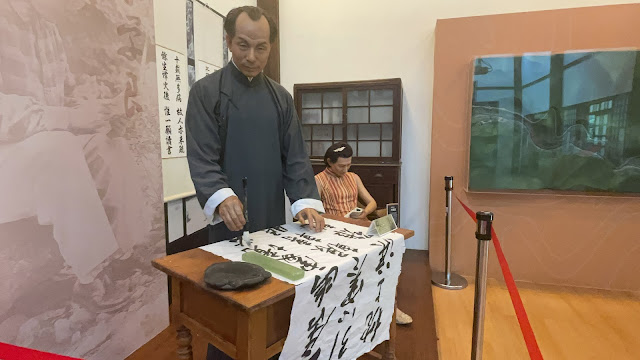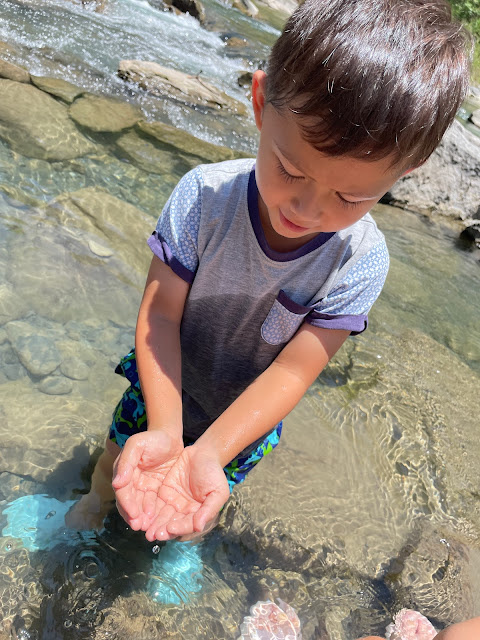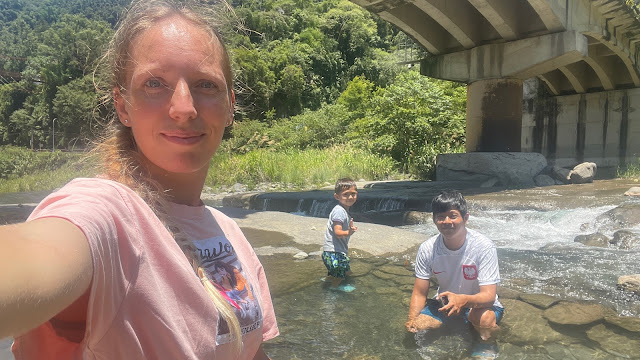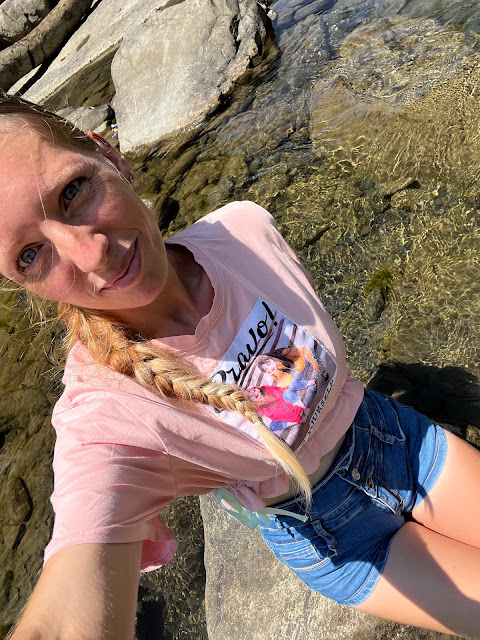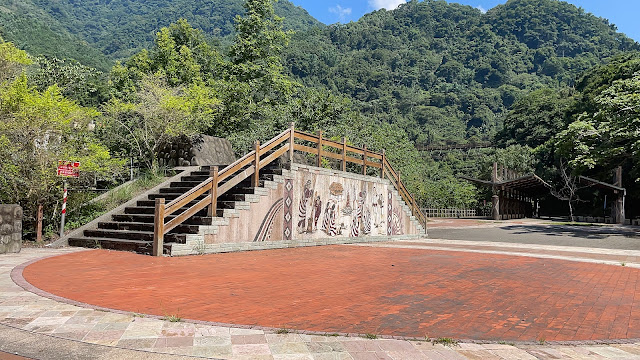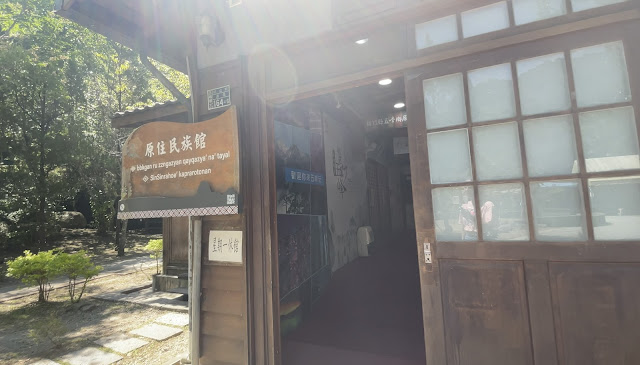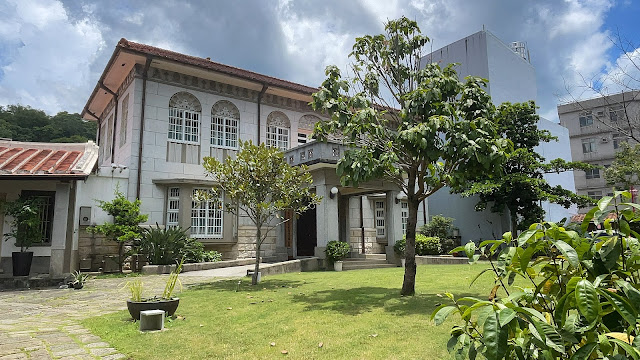Unfortunately, it happened – all three of us got sick with Covid-19 in the middle of July.
It started with my husband experiencing pain and having a high fever. Since it was a Sunday, all clinics were closed. He refused to go to the hospital's emergency room, thinking he could wait until Monday. We had some painkillers and fever syrup at home, so he took those and went to sleep. The next morning, I brought him to see a doctor.
We had to wait in line for two hours as there were so many patients, although most of them didn't seem really sick. The visit was not even five minutes long, and he received some pills to take for the next three days.
Unlike in Poland, in Taiwan, you have to pay for a doctor's visit, which currently costs 200NT, but it includes the medicine, making it really cheap. The medicine is packed in separate packages, just enough for the days you have to take it, so you won't have a whole package of each medicine like we do in Poland. I think this approach prevents a lot of medicine from going to waste if we get better before finishing the package, so it sounds really good. Also, normally three days of medicine are enough to get well.
My husband slept the whole day, only getting up for meals and medicine. At that time, my son and I were fine. Since there were no restrictions anymore, our son still went to kindergarten.
Due to our return to Poland earlier this year, my husband doesn't have many days off (2 or 3 only...). Additionally, there is only 1 other person working in his position, but he took time off due to his mother's death, so on Tuesday, my husband was already working. The good thing is he mostly works from home, so he just sat there and did his tasks. When there was nothing to do, he took naps as he was still feeling tired from COVID-19.
On Wednesday morning, I started feeling muscle pain, but other than that, I was okay. I thought maybe it was because I had slept on the sofa for the past three nights and didn't feel comfortable sleeping. I still took our son to kindergarten, cleaned, and cooked as usual. While I was on my way to the shop, we received a phone call from the kindergarten. Adrian seemed fine in the morning, but two hours later, the teacher called us, saying he had a high fever. We picked him up and went to the doctor together.
Once again, we had to wait in line for over an hour. It was pretty hot, and I started to feel unwell, lacking air. I went outside to sit, but instead of helping, it made me feel nauseous. Going back inside, with the sudden change from hot to cold, I felt dizzy and nearly passed out. After sitting for five minutes, I felt totally fine, as if nothing had happened. Nevertheless, we got medicine for me and our son.
Adrian slept for nearly two days straight as well, but after that, he was totally fine. He didn't have any other symptoms except for fever and muscle pain on the first day. It was the last week of his kindergarten before the (very short) summer holidays, and he was upset because they had planned to play in the water, but he had to stay at home. However, by the weekend, he was totally fine, and on Monday, he still went to kindergarten to say goodbye to the older kids who were going to attend elementary school.
Speaking of the kindergarten, every place is different, but our son's kindergarten only has one week of summer holidays and one week of winter holidays, as well as national holidays, etc. For Europeans, it may seem very short, but for kids his age, it's totally fine as they have plenty of toys and friends to play with. Our son loves his kindergarten, and even when he's off, he asks when he's going to go there again.
He stays for eight hours, but the kindergarten opens for 12 hours a day! The normal payment actually covers 10 hours, and the additional 2 hours from 5-7 PM have an extra fee (very cheap tho!).
We sent him to a public kindergarten, which is very cheap, about 2500NT per month, which includes all meals, snacks, and any materials they use for crafts, etc. The teachers are super nice.
We also have a Line group, so if there's anything important, they will send messages there with updates, or I can contact them if I need to.
Every kindergarten is different, so, for example, my friend's kids finished at the end of June and have a two-month holiday. Also, if you don't attend for five or more days, you can get part of the money back.
For those who may have kids in Taiwan but don't know the rules for attending kindergarten – most places have a lottery system, and often there are more kids than available places. Sometimes you have to register even two years earlier.
We moved during the school year and were lucky that they had space. Public and semi-public kindergartens are cheaper compared to private places. Kindergartens and schools in Taiwan require household registration, which can be troublesome as many landlords refuse to register (to avoiding higher taxes, etc.).
The difference between Taiwan and Poland is that if your child goes to school in Poland, you will still receive a government subsidy. In Taiwan, you can only get subsidies for up to six years, but if your child attends kindergarten, you won't get child allowance. I'm not sure what the price is now, but before he joined kindergarten, it was 2000 or 2500NT (280 - 350 PLN) per month.
In Poland, you can get 500+ PLN (3500NT), school fee 300PLN each school year, and some extra money for low-income families. Some of the money you can get until you are 26 years old if you study at a university, or at least until you are 18 years old! It's a huge difference, but also the tax in Poland is a lot higher than in Taiwan, so it's reasonable.
We finished moving to a new house recently and son went back to kindergarten, so finally, I'll have more free time. I recorded some videos, but they have been waiting to be edited for a couple of weeks. If you have children, you'll understand that usually, it's hard to get anything done around them...
It's so tiring to always change places, but there was no choice. The landlady is so greedy lol. We paid 27000NT a month, but when checking prices in the area, most of them were 21000-23000NT. Yet, the landlady wanted to raise the fee!
There are many unrented empty apartments in the area, and more are still being built. Therefore, it's not a situation of super high demand for rental places where you can increase prices all the time
There was no negotiation, she just straightforwardly told us that if we don't accept it, we should move out. So we did.
At least the new landlady is super nice and friendly!
Later, the building manager tried to push us to rent other expensive apartments in the building. It's a sales tactic; that's what they do. They attempt to find gullible people who would rent or buy something above the market price. They also often hide important information. So, if you want to buy a house in Taiwan, be careful.
We almost bought a house with a road in front of it that belonged to someone else, and they could potentially block it at any time. However, that probably wasn't an important detail they mentioned to potential buyers.
I would like to mention something that I've noticed during my life in Taiwan. It's my personal experience, and while some of you might be unhappy to hear it, I think most Taiwanese people don't clean their houses regularly. When we rented this place, it was dirty. The toilet was yellow, the kitchen stove was dirty, and I spent the whole day cleaning it thoroughly. The apartment looks way cleaner than it did a year ago.
This issue isn't limited to just this place. We have moved several times and visited many rental places as well as houses for sale. In my experience, almost all of them were really untidy. I understand that sometimes people don't live inside, and dust will accumulate, but we have also visited homes where families were living, and even there, we were asked to take off our shoes, but the floors were full of dust, hair, and other things. Wearing white socks, they turned grey afterward!
I also don't understand why many people don't paint their walls or change furniture after like 30-40 years. Nobody seems to take care of their houses properly but still asks for a lot of money in return. In contrast, going back to Poland, in just 3 years, I noticed huge changes in some of my family's houses - refreshed colors, renovations, and new furniture. Poland isn't as wealthy as Taiwan, but people take care of their property a lot more than they do here.
A video from previous rental apartment:













